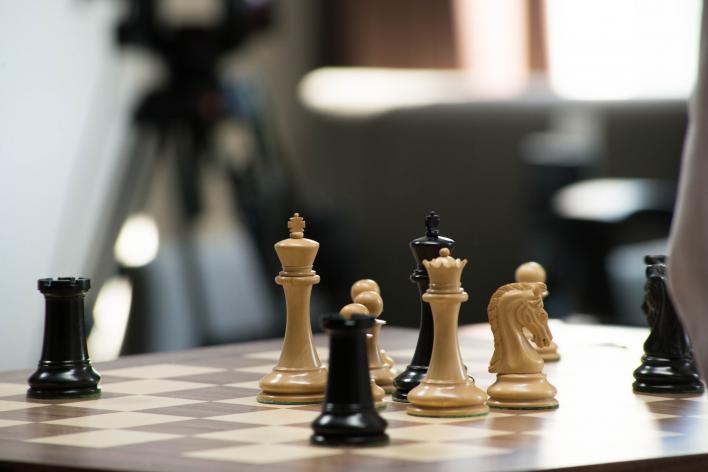
By GM Josh Friedel
As part of my duties as Grandmaster in Residence, I help out at the John Burroughs School Chess Club in Ladue, a suburb of St. Louis. While there, I sit down with a nice group of kids from various age groups to go over games they played earlier in the week. I tend to be a pretty harsh critic, but the kids are good sports about it, and they seem to get something out of the experience. It reminds me of something I get asked quite often: How do I spot talent in young players? The subject of “talent” is a complex one, and everyone has their own opinion of how it manifests itself in a chess player. Being able to see tactics fast is certainly a promising sign. Some players are highly adept at memorizing openings or endgames. There is another quality which often gets overlooked, however, and in my view it is one of the most important ones for an aspiring chess player to possess: Curiosity.
Many young players treat going over games almost as homework assignments. Their aim is to get through them as quickly as possible, note which moves could be improved, and then move on. This is truly of limited value, as unless you get the same exact position again, it won’t really help you avoid similar mistakes going forward. Sometimes I see a player, however, who cannot stop asking questions. One student at the John Burroughs Club exhibited this trait. He asked why he should develop pieces in a certain order, why some ideas work in one situation and not in another, and pretty much everything else under the sun. Don’t get me wrong, this can be a time consuming practice, and it isn’t always practical to take apart every decision in the most painstaking of detail. Of course, that rarely stops me from doing it. Yet these are the students I really keep my eye on, because I know that they will be constantly exploring the game of chess and seeking out answers.
Fast forward to adult players who are looking to improve. It is not a secret that trying to get better is usually more difficult when you are no longer a spring chicken. Memory tends to get worse, and keeping your energy level up is far more difficult. In my view, while these are certainly issues, the lack of curiosity can be far more inhibitive. Adult players of all levels have a tendency to assume they have things figured out. They have their openings and positions that they like, and rarely will you find them stray from their knowledge. Chess is an extremely vast landscape. Even experienced GMs have areas that need improvement, and types of positions they don’t know so well. While it is important to stay true to your strengths, improving is nearly impossible if you aren’t actively seeking out new knowledge. You’ll also find that the process of exploring will help allow room for growth, correct gaps in your understanding, and keep the game fresh. Curiosity is a vital quality in any chess player, and not losing it will ensure that improvement is never out of your reach.


